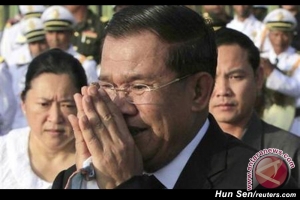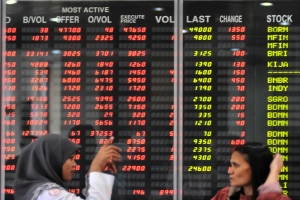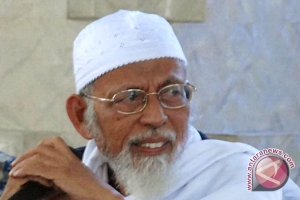SEOUL, Feb 10 — North Korea said it will no longer take part in military talks with Seoul after walking out of a preliminary meeting, state media reported today, as a stalemate emerged over the starting point for dialogue.
The United States, which has nearly 30,000 troops in South Korea, said it was hopeful the rivals could work out their differences and resume talks as soon as possible to reduce tensions on the divided peninsula.
Preliminary military talks between the neighbours broke down yesterday over procedural issues, including the agenda for their meeting and the rank of participants that would attend a subsequent senior meeting.
"In a situation where (they) do not wish for improvement of North-South relations and are refusing dialogue itself, our military and people no longer feel the need to be associated with the South," the KCNA state news agency quoted the lead delegate from the failed talks as saying.
Analysts said the breakdown was inevitable as both sides came to the negotiating table with different issues, and noted that the walkout follows a similar pattern to past sputtering inter-Korean dialogue.
Colonels from the two Koreas met at their heavily fortified border for their first meeting since the North's attack on the southern island of Yeonpyeong in November, which killed four people.
But the North's delegates abruptly walked out of the meeting on the second day.
South Korean media reported the process will now return to the drawing board, with both sides likely to exchange statements leading to a resumption of talks.
Seoul said its offer for senior-level military talks still stood, but on the condition the North "takes responsible steps" regarding attacks that killed 50 South Koreans last year.
Reports said the North Korean delegates stood by their stance that Pyongyang had nothing to do with the sinking of the South's Cheonan warship in March and that it shelled Yeonpyeong out of self-defense.
The North also insisted that discussions about the attacks should be taken up at the senior level, South Korean media reported.
Tensions have eased on the peninsula since the start of the year, with both sides calling for dialogue, raising hopes the neighbours could rebuild relations shattered over the past two years by a series of deadly attacks and failed nuclear talks.
The collapse of the inter-Korean talks have also dealt a setback to the resumption of international aid-for-disarmament negotiations, which have been stalled for over two years.
"Outwardly, they act as if they are interested in dialogue but on the inside they are refusing dialogue, blocking the reopening of six-party talks and blocking the flow of dialogue between countries surrounding the Korean peninsula," KCNA said.
Beijing and Washington had set inter-Korean dialogue as a prerequisite to restart six-party talks which offer the North aid and diplomatic recognition in return for disabling its nuclear arms program. Tokyo and Moscow are the other six-party members.
The North has said it wants to return to the broader negotiations, but Seoul and Washington have questioned its sincerity about denuclearising — pointing to its revelations last year about a uranium-enrichment programme.
Pyongyang says its uranium-enriching facility is for peaceful energy-producing, but regional powers, including ally China, have expressed concerns about the programme which opens a second route to make a nuclear bomb after its plutonium programme.
The North quit the six-way talks in 2009, declaring the process dead, in protest against UN sanctions for conducting nuclear and missile tests. — Reuters







 Sending your message
Sending your message